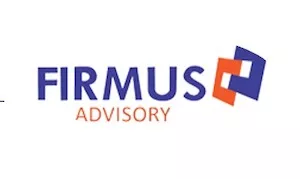- within Food, Drugs, Healthcare and Life Sciences topic(s)
- in United States
- with readers working within the Chemicals industries
- within Food, Drugs, Healthcare, Life Sciences, Finance and Banking and Energy and Natural Resources topic(s)
Introduction
Herbal products have long served as a trusted source of medicine for many Nigerians, and the growing demand has led to a significant rise in both importation and local production. To ensure that these herbal products meet safety and quality standards before they are sold, imported or distributed in the Nigerian market, it is a requirement of law that these products are registered with the National Agency for Food and Drug Administration and Control (NAFDAC). Some examples of such products registered with NAFDAC include Jobelyn, Yoyo Cleanser, Livoline, and Herbitrine.
For both importers and local manufacturers, this guide provides a step-by-step overview of how to register your herbal or dietary product with NAFDAC.
What are Herbal Medicines?
Herbal medicines are plants-based products used as medicines. They can include a variety of forms like dried, chopped, or powdered herbs, as well as capsules, liquids, teas, and extracts. Herbal Medicines are often used alongside or as alternatives to modern medical treatments.
Step-By-Step Guide on How to Register Traditional and Herbal Medicines with NAFDAC
Step 1
Register your company or your business name with the Corporate Affairs Commission (CAC). For foreign companies not looking to set up a Nigerian company, appoint a registered local agent. The local agent acts on behalf of the foreign manufacturer and facilitates registration of the products.
Step 2
Register your trademark or brand name with the Ministry of Trade and Investment.
Step 3
Create an account on the NAFDAC Automated Product Administration and Monitoring System (NAPAMS).
Step 4
Write a formal application letter on your company's letterhead addressed to the Director of Registration and Regulatory Affairs (R & R) Directorate Ground Floor, NAFDAC Office Complex, Oshodi-Apapa Express Way, Isolo, Lagos State.
Step 5
Visit the NAPAMS to purchase, complete and download the application form. Note that a separate application form should be submitted for different products.
Some of the details required to be on the form include:
- Manufacturer Information such as Name of the Company, full location address of the factory, email address, and current phone no. For imported pesticides, include the name of contact person overseas, telephone no, email address, name of airport closest to the location and guide map illustrating the shortest land/air route to the factory overseas (where applicable), etc.
- Company's Tax Identification Number, where applicable
- Details of Applicant, such as name, contact, address, qualification, job title, warehouse address, etc.
- Number of products
- Details of the products
- Names of four 4 staffs including production manager, production staff, quality control and marketing director, where applicable.
Step 6
Along with the completed application form, attach the following documents for submission at the nearest NAFDAC office:
- Certificate of business name registration or company incorporation
- Evidence of brand name registration with the Trademark Registry.
- Herbal Medicine Technical Information Submission Template (HMTIST) using the HMTIST on the NAFDAC website.
- A Contract Manufacturing Agreement (CMA), where the applicant is in a manufacturing contract with another company. The CMA should be signed by the Manufacturer and the Applicant, and must be notarized in the country of manufacture. The CMA should also state the names of all the products to be registered in a clear language.
- Evidence of payment of the required fees to NAFDAC
- For local manufacturers, an application is to be made to the Drug Evaluation and Research (DER) Directorate. More information on the requirements for the inspection can be found on the NAFDAC website.
- Product Labels/Coloured Artworks and leaflet insert of the product
- Comprehensive Certificate of Analysis. The Certificate of Analysis must be presented in the letterheaded paper of the Quality Control Lab oratory where the products were tested, and should contain the N
- The brand name of the products
- Batch number of the products
- Manufacturing and expiry dates
- Name, designation and signature of the analyst
For imported herbal medicines, the following documents should be included:
- A Notarized Declaration
- A Power of Attorney (POA). The POA should be valid for at least 5 years and must be signed by a senior company official. It must also be notarized in the country of manufacture; state the authority to register the product with NAFDAC and indicate ownership of the brand name or trademark.
- A Certificate of Manufacture and Free sale. This is essential to show that the manufacturer is licensed to manufacture Herbal Remedies. The Certificate should be obtained from the relevant health/regulatory body in the country of manufacture, showing that the company is licensed to produce the food product and that it complies with local laws. The Certificate must also be authenticated by the Nigerian Embassy or High Commission in the country of origin or any Commonwealth or ECOWAS country, where no Nigerian Embassy exists.
- Letter of Invitation for Good Manufacturing Practice (GMP) inspection: A letter of invitation to inspect the factory abroad shall be written by the manufacturer and should include both the manufacturer's and local agent's details.
To view the article in full click here
The content of this article is intended to provide a general guide to the subject matter. Specialist advice should be sought about your specific circumstances.


